On Jan 26th 2021, the summarizing ceremony of SEA-PLASTIC-EDU project was held after 3 years of operation. This is a project that aims to enhance education and training capacity in management and recycling plastic, focusing on the quality, safety and effective use of resources with the participation of 6 universities from Austria, Germany, Denmark, Laos and Vietnam.
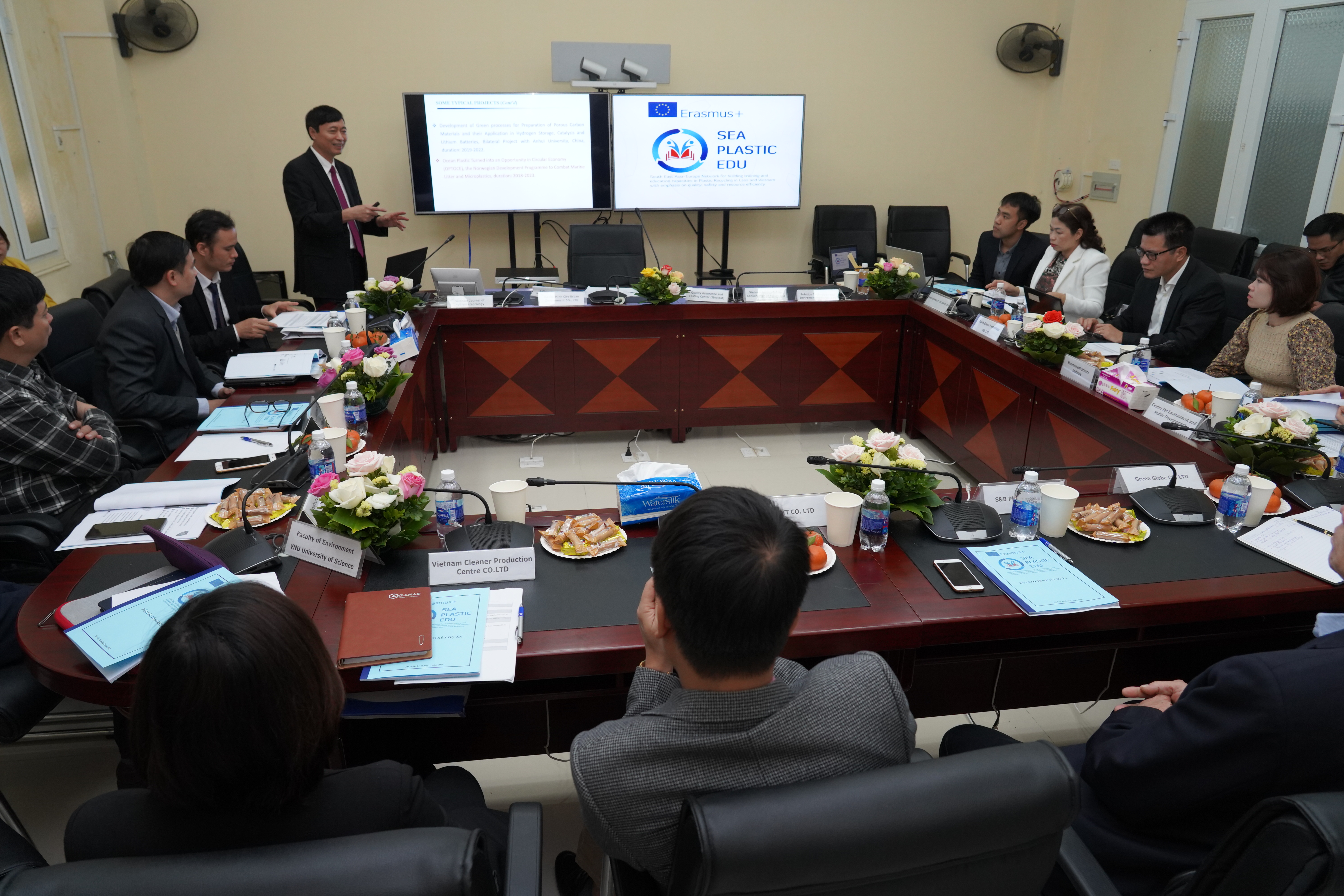
Associate Professor Tran Dinh Trinh, Key Laboratory of Advanced Materials for Green Growth, HUS said: “SEA-PLASTIC-EDU project is run mainly by University of Natural Resources and Life Sciences (Vienna, Austria) with European partners Dresden University of Technology (Germany) and Aalborg University (Denmark); Asian partners Laos National University, Hanoi University of Sciences (VNU) and HUTECH (Ho Chi Minh City). The project’s main purpose is to help universities in Laos and Vietnam update knowledge about managing and recycling plastic materials, strengthen the connection between scientists and organizations andcompanies that manufacture and recycle plastics in Vietnam, Laos and the EU.
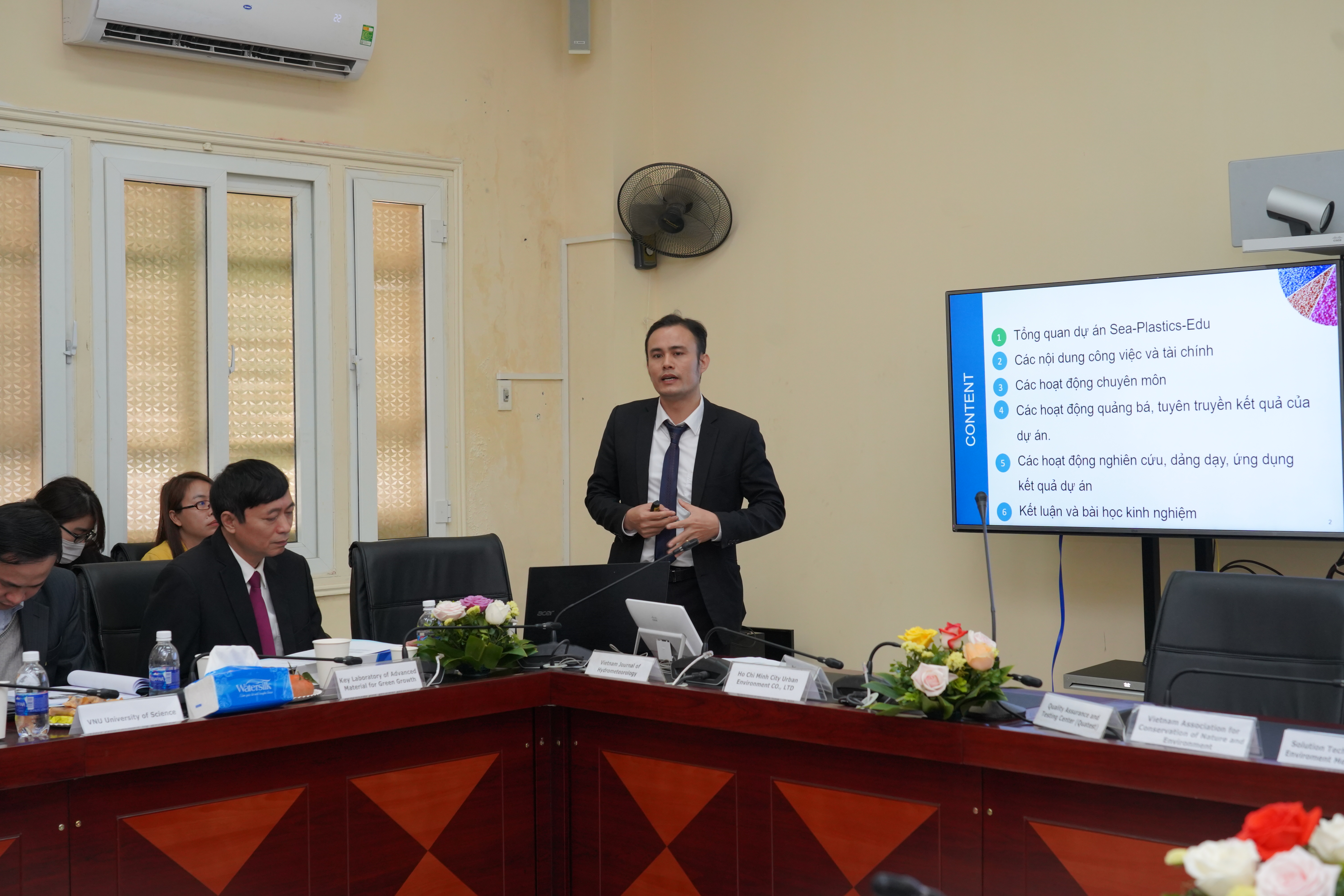 Associate Professor Tran Dinh Trinh, Key Laboratory of Advanced Materials for Green Growth, HUS, delivering his speech.
Associate Professor Tran Dinh Trinh, Key Laboratory of Advanced Materials for Green Growth, HUS, delivering his speech.
During the project (from May/2018 until December/2020), participants achieved all the goals that had been set such as: developing training programs at undergraduate and graduate levels, developing training programs for companies, buildind data, specifications, pilot teaching (writing 17 textbook chapters on the management of wastes and plastics for training programs at graduate and undergraduate levels and for companies)… Academic activities are organized regularly and efficiently, for example: 5 offline meetings and seminars had been held in Hanoi, Vientian, Ho Chi Minh City, Vienna and Dresden (Germany); 21 online meetings among all members of the project and numerous online meetings between two or more partners were held to solve various issues.
In HUS, many training workshops on analyzing and managing recycling plastic waste have been held with a view to provide enterprises with up-to-date knowledge. In addition, field trip to promote and disseminate the project’s research results at craft villages have brought helpful information to both villagers and members of the study team.
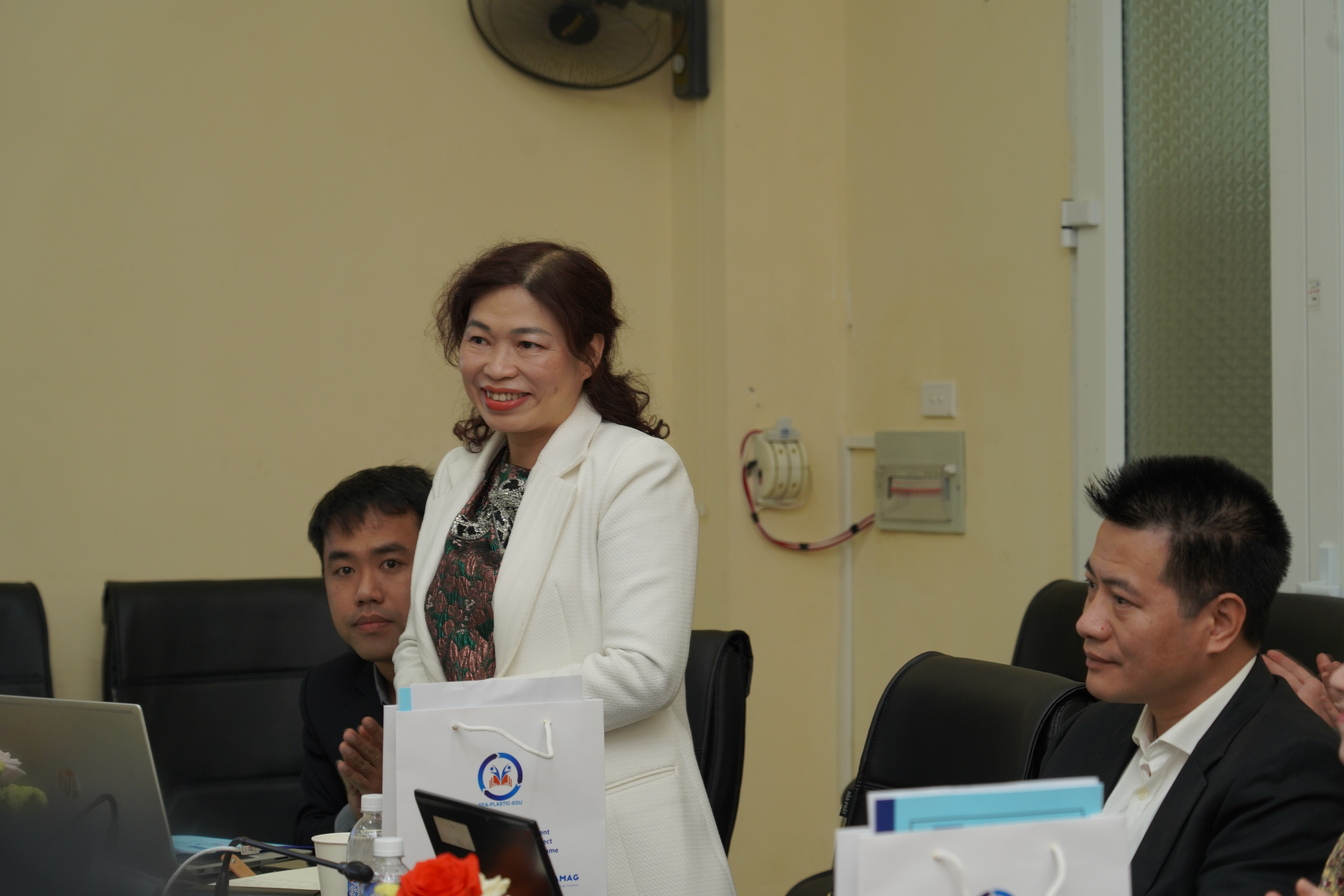 Ms. Le Thi Yen Nga, Deputy Director of LLC, import-export Minh Tien Coffee Company speaking
Ms. Le Thi Yen Nga, Deputy Director of LLC, import-export Minh Tien Coffee Company speaking
Attending at summarizing ceremony of SEA-PLASTIC-EDU project, Ms. Le Thi Yen Nga, Deputy Director of Minh Tien Coffee Co. Ltd. said: Our company has cooperated with research team and Babio Green Technology J.S.C to use by-products such as husks of coffee beans in order to create environmentally-friendly products (like wrapping papers, knives, spoons, forks...). Our coffee and fruit tea products do not contain artificial food-color or preservatives, meeting the high standards of both domestic and international customers. Using by-products of coffee also help limit the amount of wastes released into the environment significantly.
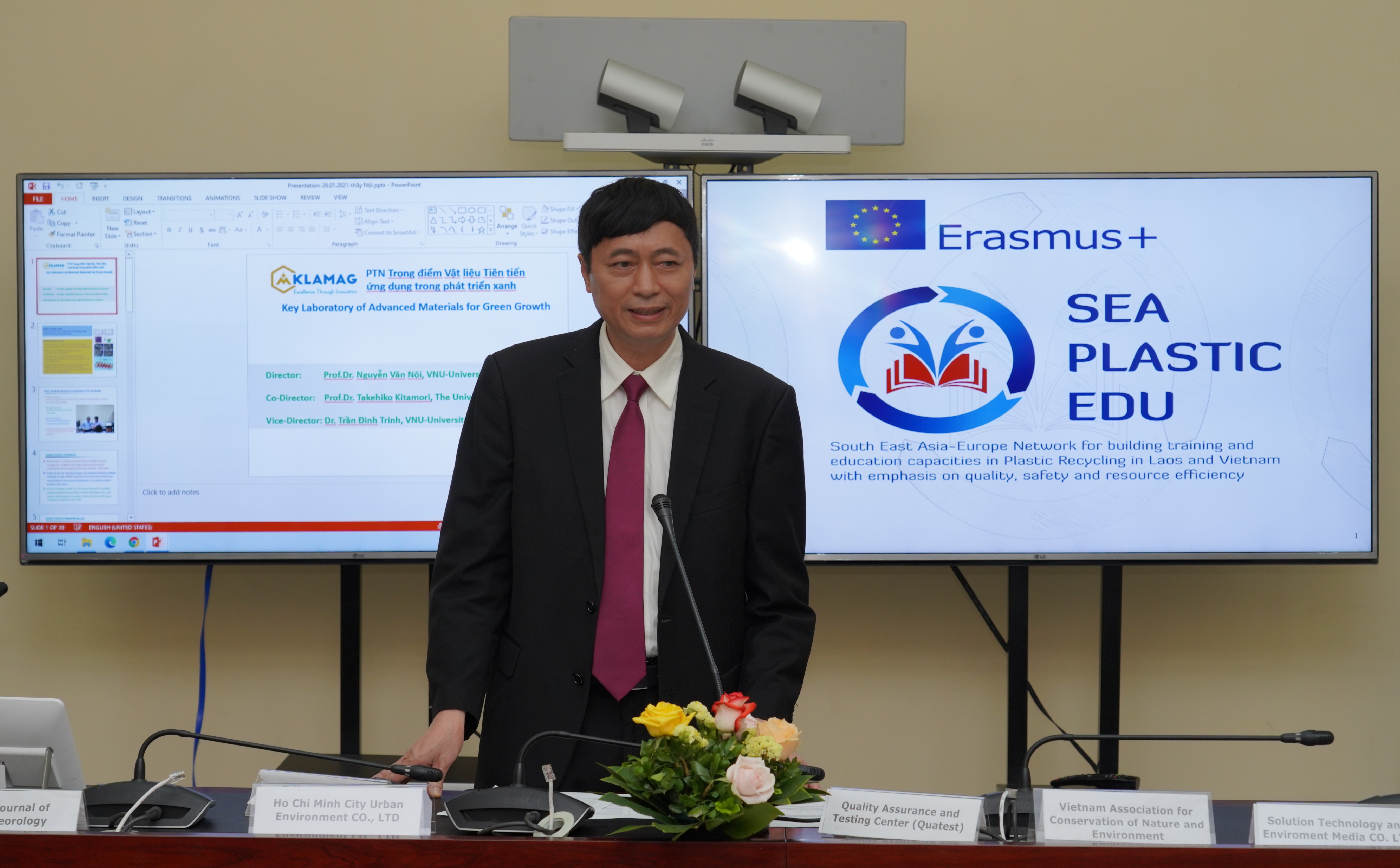 Prof. Nguyen Van Hoi, Rector of HUS, Director of Key Laboratory of Advanced Materials for Green Growth speaking at The Summarizing Ceremony of SEA-PLASTIC-EDU Project
Prof. Nguyen Van Hoi, Rector of HUS, Director of Key Laboratory of Advanced Materials for Green Growth speaking at The Summarizing Ceremony of SEA-PLASTIC-EDU Project
Prof. Nguyen Van Hoi, Rector of HUS, Director of Key Laboratory of Advanced Materials for Green Growth, said: “Although SEA-PLASTIC-EDU Project has ended, the “prolonged” work of the project is still done through the “Cooperative Center for plastics quality control and accreditation” sponsored by EU. Procedures for the establishment of the Cooperative Center are being completed.”
It is expected that the “Cooperative Center for Plastics quality control and accreditation” will be located at the Key Laboratory of Advanced Materials Applied in Green Growth. Equipped with advanced facilities, the Center’s task will be to support students, researchers and enterprises working in the field of plastics/ plastic waste, with the aim of reducing plastic waste,protecting the environment and the community’s health.
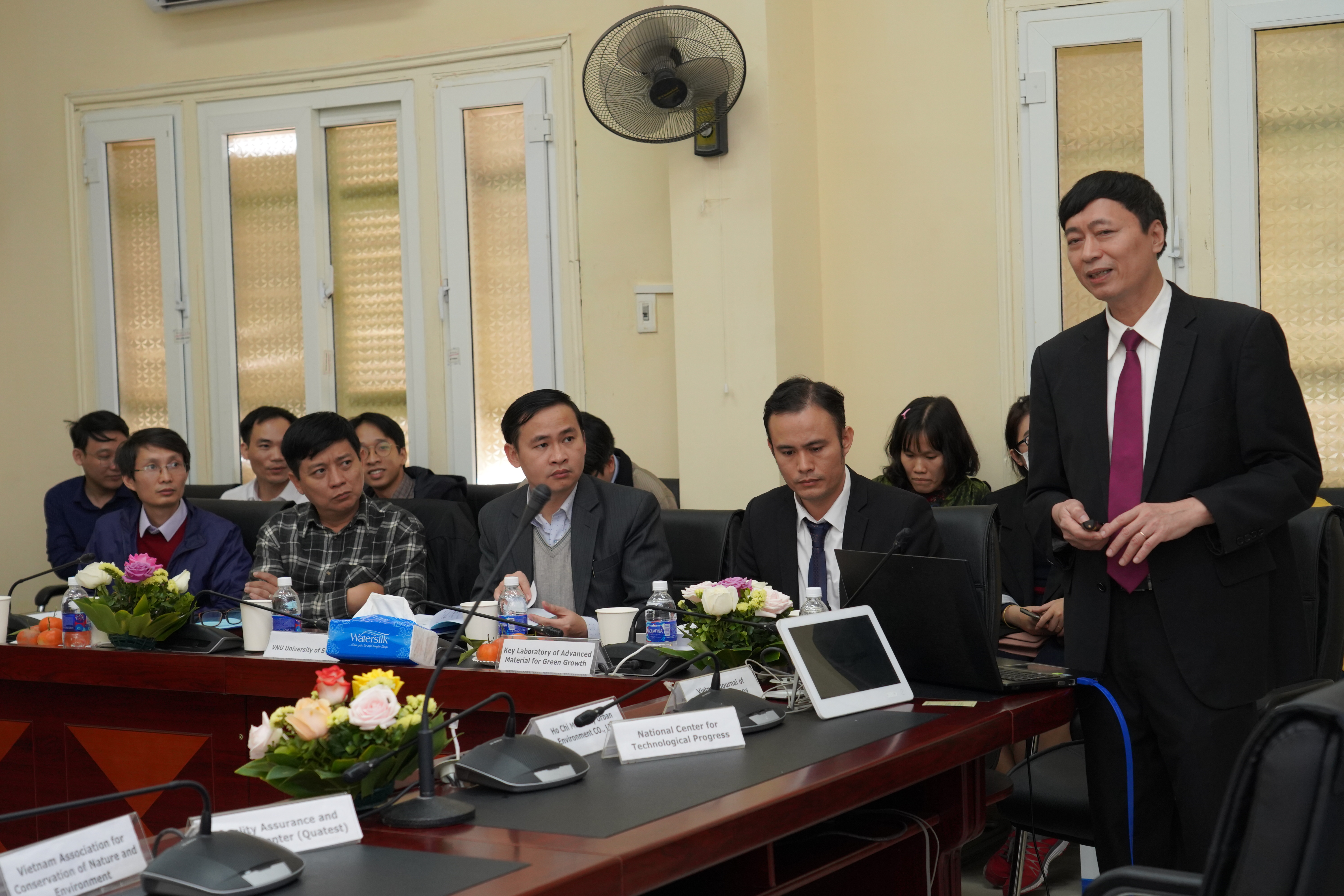
Nowadays, plastic waste is among the most common and urgent to be treated. This kind of material is widely used in packaging, consumer goods such as electrical and electronic devices and household goods. The risks associated with this kind of waste are much higher than those of domestic waste, due to the very high durability of plastic waste in the environment. They also contain harmful materials like heavy metals or fire-proof elements containing bromine – pollutants that will be released into the environment if not treated appropriately. To treat these wastes appropriately, extensive knowledge about waste management, technology and emission control is required. In Vietnam, there are about 2,800 craft villages producing a variety of goods such as handicraft product. Some of these craft villages recycle products. Recycling contributes to the conservation of resources, but the process of washing and melting plastics also poses a risk to people’s health and the natural habitat.from all
Marine litter is also a matter of concern. Data has shown that : 80% of marine litter comes from land and from poor waste treatment practices such as landfill dumping, uncontrol disposal and littering at beaches or coastal areas. These phenomena result in damages and costly expenses for both fishing and tourism industries. Marine litter can be prevented efficiently by reducing wastes emission (especially plastic ones), managing and boosting recycling, avoiding single-use products and using eco-friendly designs, educational activities and intensive awareness programs.
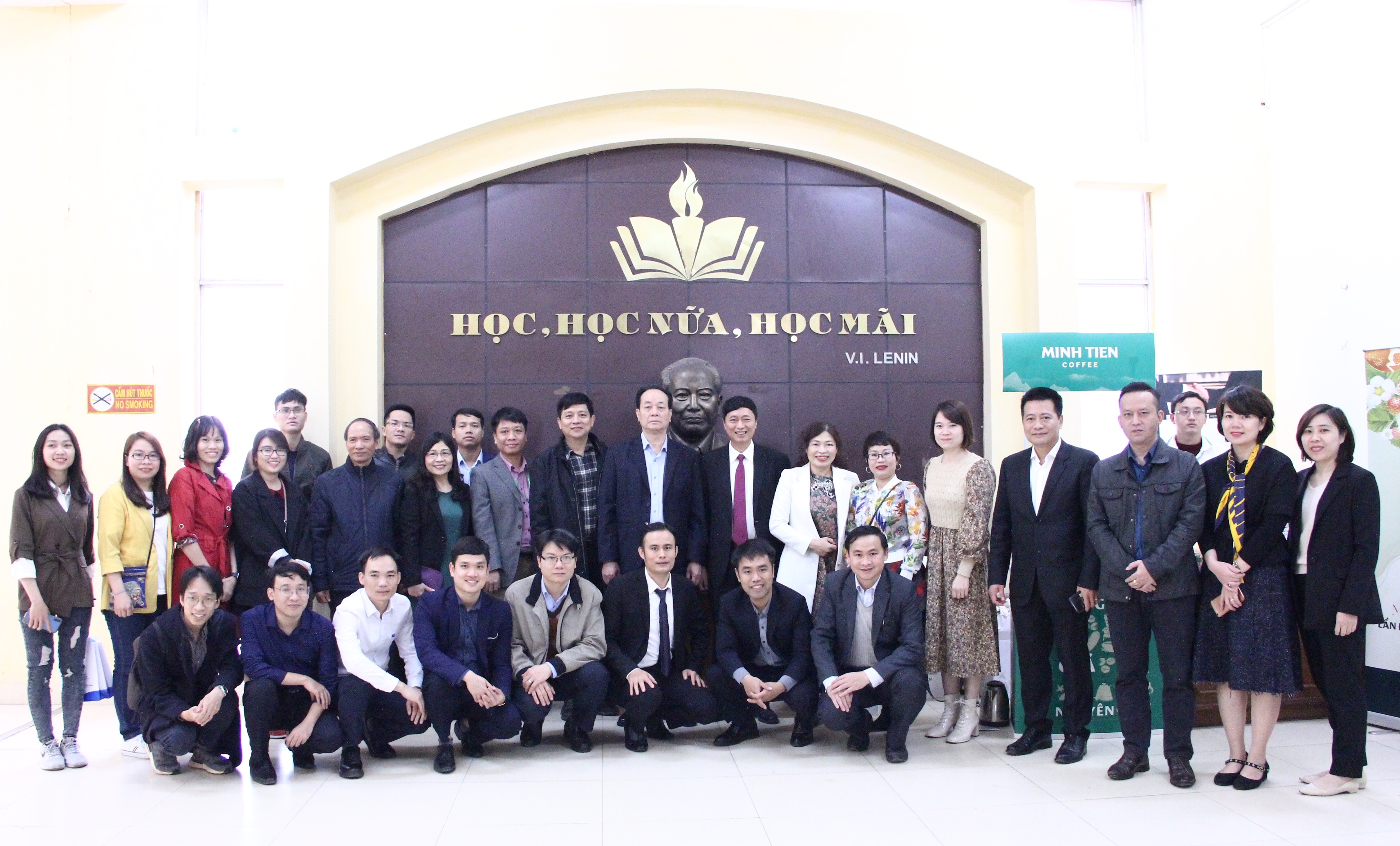 Participants of the Summarizing Ceremony of the SEA-PLASTIC-EDU project in the photo session
Participants of the Summarizing Ceremony of the SEA-PLASTIC-EDU project in the photo session